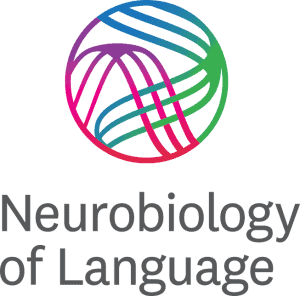Angela Morgan
 Genetic architecture of childhood speech disorders
Genetic architecture of childhood speech disorders
Thursday, October 24, 2024, 9:00 – 10:00 am, Great Hall 1
Chair: Greig de Zubicaray, Queensland University of Technology
Speaker: Prof Angela Morgan, Murdoch Children’s Research Institute & University of Melbourne
As early as the 1950s, the familial nature of speech disorders was recognized, implying a genetic basis; but the molecular genetic basis remained unknown. In 2001, investigation of a large three generational family with severe speech disorder, known as childhood apraxia of speech (CAS), revealed the first causative gene; FOXP2. A long hiatus then followed for CAS candidate genes, but in the past three years, genetic analysis of cohorts ascertained for CAS have revealed over 30 causative genes. A total of 36 pathogenic variants have been identified from 122 cases across 3 cohorts in this nascent field. Current findings suggest a remarkable one in three children have a genetic variant that explains their CAS, with significant genetic heterogeneity emerging. Around half of the candidate genes identified have medium (6 genes) to strong (9 genes) evidence supporting the association between the gene and CAS. Despite genetic heterogeneity; many implicated proteins functionally converge on pathways involved in chromatin modification or transcriptional regulation, opening the door to precision diagnosis and therapies. Most of the new candidate genes for CAS are also associated with previously described neurodevelopmental conditions that include intellectual disability, autism and epilepsy; broadening the phenotypic spectrum to a distinctly milder presentation defined by primary speech disorder in the setting of normal intellect. The shared mechanisms implicated by gene discovery for CAS highlight potential new targets for future precision therapies in these rare conditions. But what do these findings mean for speech and language skills at a population level? Insights into the genetic bases of CAS, a severe, rare speech disorder, are yet to robustly translate to understanding the heritability of more common, typically milder forms of speech or language impairment such as stuttering or phonological disorder. These disorders likely follow complex inheritance with polygenic contributions in many cases, rather than the monogenic patterns that underly one-third of patients with CAS. Regardless, to date, single gene contributions remain an accessible and important entry point for unravelling the molecular bases of human communication.
About Angela Morgan
Prof. Angela Morgan is an NHMRC Elizabeth Blackburn Fellow and Director of the NHMRC Translational Centre for Speech Disorders at the Murdoch Children's Research Institute in Melbourne Australia and is also a Dame Kate Campbell Fellow at the University of Melbourne, and Director of the Speech Genomics clinic at the RCH, Melbourne. Angela’s career has focused on understanding causation, predictors, prognosis and therapies for severe and persistent speech and language disorders in children. Most recently, her team have identified over 30 genes associated with childhood apraxia of speech and a novel gene causative for stuttering. Work by her group is directly translated into international guidelines for clinical management of children with these rare genetic conditions.
The SNL 2024 Keynote Lecture is Sponsored by The MIT Press.

